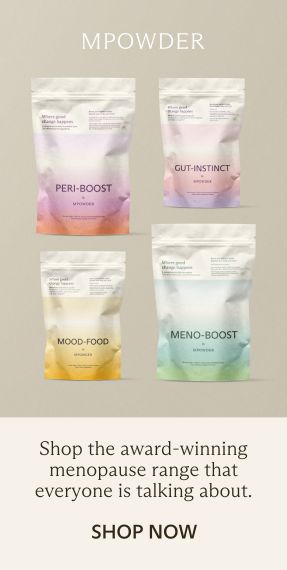As researchers looking at how we nourish our bodies and mind in menopause, we spend a lot of time talking about the impact of our sex hormones. But our bodies are actually home to over 100 hormones. Each has a distinct role to play. And, crucially, each also impacts the other. To focus just on the behaviour of progesterone and oestrogen in midlife over-simplifies what takes place. And also limits the tools and practices that have significant potential to impact how we feel.
Our biology is phenomenal. And, our bodies want to be in balance. And one of the other key hormones it requires to move through the world with ease is serotonin.
Understanding Serotonin
Serotonin, often referred to as the "happy hormone," is a neurotransmitter that plays a vital role in regulating our mood, emotions, and our mental health. Because of its connection to how we feel, we often assume it originates in the brain. But we actually produce up to 95% of our serotonin in our intestines, and it plays a critical role in supporting digestion as well as appetite regulation.
What happens to serotonin during menopause?
Oestrogen plays a crucial role in modulating serotonin receptors in the brain. When oestrogen levels fluctuate, the sensitivity and responsiveness of our serotonin receptors can be impacted.
We’re also learning more about the impact menopause has on our gut microbiota. And, when our gut microbiota is disrupted, it reduces our ability to produce metabolites that impact serotonin synthesis and signalling. Reduced serotonin levels may, in part, explain why so many of us struggle with IBS, or gut issues in midlife… Why we may feel hungrier or less satiated after food. It even impacts our ability to absorb nutrients from the food we put on our plates - highlighting the need for smart supplementation.
And low serotonin levels don’t just impact our mood and our digestion; it is also important for sleep regulation and cognitive function. Some research also points to low serotonin as an influencing factor in severity of hot flashes, as it may impact our body’s ability to regulate temperature.
So, what can we do to support serotonin production?
Speak to your doctor:
HRT, if available to you - or something you’re considering, can help with serotonin production by balancing oestrogen and progesterone levels.
Focus on food:
We can’t get serotonin directly from food, but selecting foods high in tryptophan, an amino acid that our brain converts into serotonin, can make a big difference. High protein sources contain the highest levels of tryptophan - but make sure you eat them alongside a slow release carbohydrate source to help the tryptophan cross the blood brain barrier. And, as is often the case with wholefood, the best combinations deliver so much more than a singular benefit. Adding cashews and seeds with your morning porridge will make tryptophan easier for our bodies to utilise…but it will also deliver fibre, phytoestrogens, magnesium, b-vitamins, selenium and folate too. Look to increase your intake of probiotics too. For more details on our favourite sources, check out our journal HERE.
Move more:
We all know that movement is critical to our healthspan - and that it can impact how we feel too. The recipe is simple; choose what you enjoy. All forms of exercise appear to have the ability to impact serotonin levels; from high intensity cardiovascular exercise to yoga, where it is believed the meditative aspect of the practice can impact serotonin levels, we rarely regret movement. And, like food choices, the benefits of exercise extend way beyond its impact on this hormone. Work out what works for you. And make movement a non-negotiable part of your week. Your future self will thank you for it.
With love, Rebekah & The MPowder Team
Safety note: Nature packs a powerful punch. Before making any changes to your lifestyle, always seek advice from your medical practitioner - and remember supplements and wholefoods can impact absorption of prescription medicines.
Share Twitter Facebook Pinterest

